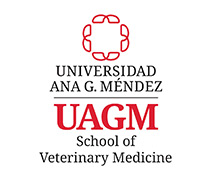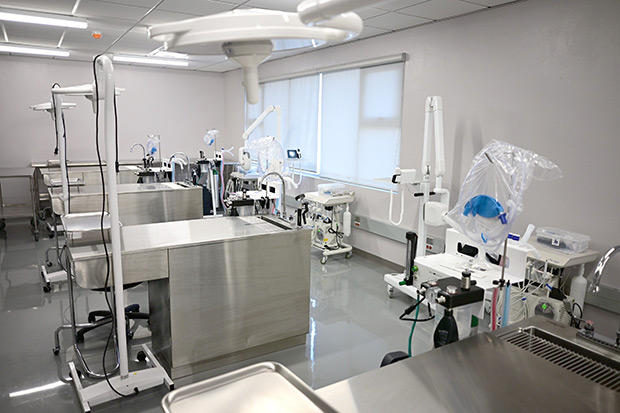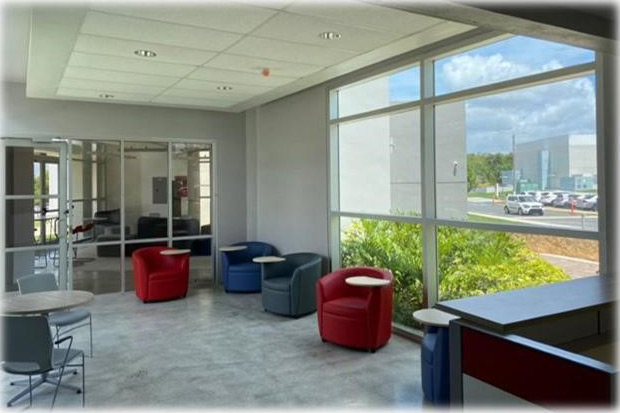Puerto Rican veterinary school will open this fall
Updated February 15, 2024
The first veterinary college in Puerto Rico is on the path toward becoming accredited by the AVMA Council on Education (AVMA COE).
The Ana G. Méndez University-Gurabo (UAGM-Gurabo) School of Veterinary Medicine (SVM) received a letter of reasonable assurance from the council after it met on December 15, 2023. The decision is based on its comprehensive site visit that took place August 27-31, 2023, in Gurabo, Puerto Rico, which is about 25 miles south of San Juan.
"The letter of reasonable assurance was greatly appreciated by the SVM and the UAGM central administration. We have put in considerable effort to see this project through to completion," said Dr. Shaiana M. Negrón-Pagán, dean of the veterinary school. "We couldn't be more pleased with our progress and grateful to our team for their unwavering support."
A letter of reasonable assurance is not a pre-accreditation action but indicates that the UAGM-Gurabo veterinary school may gain accreditation in the future if the program completes all the plans it presented to the AVMA COE. The veterinary school will accept its first class this fall. All courses and student services will be provided in English.
This new veterinary degree program, combined with the existing associate and bachelor’s degree programs in veterinary technology, will make up the new School of Veterinary Medicine. Facilities include specialized laboratories, including anatomy and pathology, diagnostic imaging, and surgery and anesthesia; veterinary teaching hospitals for small and large animals, which will serve as referral centers, provide community services, and as practice centers for students; and research facilities. The veterinary school will also use additional research laboratories, libraries, and amphitheaters already located on campus.
UAGM will offer a four-year curriculum, with the final year dedicated to clinical studies. The veterinary teaching hospitals will serve as the main resource for preclinical and clinical rotation experiences. At the same time, the veterinary school has established memoranda of agreements (MOAs) with veterinary teaching hospitals at Kansas State University, Michigan State University, Oregon State University, Purdue University, the University of Florida, and the University of Missouri. According to UAGM, all have expressed interest in hosting UAGM’s fourth-year students for their clinical rotations. In addition, the new veterinary school has secured partnerships with clinical specialty centers.
Tuition and fees for first-year students are $75,350.
The Ana G. Méndez University, founded in 1941, is a private institution with five campuses in Puerto Rico and five in the mainland U.S.
UAGM-Gurabo first sought accreditation for its veterinary school from the AVMA COE in 2021 with a feasibility study and a request for a consultative site visit, which took place February 20-24, 2022.
Dr. Negrón-Pagán has been part of the faculty for the veterinary technology program since 2016 and directed the program. The AVMA Committee on Veterinary Technician Education and Activities accredited the veterinary technology program in 2018. The program was the first in Puerto Rico to receive accreditation for both associate and bachelor’s degrees in veterinary technology.
Dr. Pagán received a bachelor's in agronomy in animal industry from the Mayagüez Campus of the University of Puerto Rico and her veterinary degree from Ross University.
She says the veterinary school will serve animal populations in need of veterinary treatment not only in Puerto Rico, but also across the world.
"The school is conveniently placed and offers the greatest educational experience possible with its highly skilled professors, specialized laboratories, and veterinary services," she said, adding that the program will allow students to pursue further graduate degrees, such as a master's in environmental sciences or public health, while also advocating for the One Health movement.
A version of this story appears in the April 2024 print issue of JAVMA



